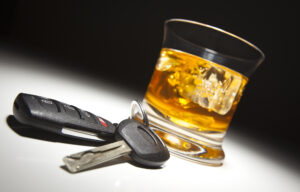DUI Defense Attorney

What is the difference between a DUI and DWI? The definition of DUI is driving under the influence, while the definition of DWI refers to driving while intoxicated. Depending on the state, some law enforcement agencies use DUI and DWI interchangeably. Others define DUI and DWI separately, and the definition depends strictly on the state laws.
It is important to note that a DUI or DWI charge may result due to intoxication from alcohol or drugs, including over-the-counter and prescription drugs.
Top 5 Tips To Help Avoid A DUI Or DWI If Pulled Over
A DUI defense attorney will tell you, regardless of how and why an arrest occurs, a DUI or DWI are three little letters you definitely do not want on your record. Read our top 5 tips on how to avoid a DUI or DWI charge if pulled over.
Obey All Traffic Laws While Driving Home And Keep Your Car Properly Maintained
The last thing you want is to be pulled over for having expired tags or broken tail light. Additionally, be sure to have your license, car registration, and insurance up to date as well since police can verify this information without even pulling you over using ALPR (Automatic License Plate Recognition).
Know Whether Or Not You Are Required To Perform Field Sobriety Exercises
A police officer may not tell you that you are not necessarily required to perform any sort of field sobriety exercise. However, it is important to know in many states your failure to complete a field sobriety exercise can be used to build a case against you to show consciousness of guilt. Also, by refusing you may be forcing an officer to prematurely make a decision whether or not to arrest you.
If Pulled Over, Be Calm And Polite
Our friends at The Law Office of Matthew Konecky, P.A. will tell you, if a officer pulls you over for a DUI or DWI, he is already making judgments based on observed behavior that will go into a police report. So be sure to find a safe place to pull over calmly, do not make any sudden or suspicious movements, and treat the office with respect since they will be the one ultimately arresting you or at least writing a very negative, and potentially incriminating, police report.
Do Not Answer Any Incriminating Questions
While you should remain respectful when speaking with an officer if pulled over, you do not need to answer any questions which may result in your arrest. You are required to give your name, license, registration, and insurance information. Other than that you maintain your 5th Amendment right to remain silent if pulled over for a DUI or DWI.
Your 5th Amendment right to remain silent may not apply to the question if you are willing to give a breath sample. In many states, if you refuse it can be used to show a guilty conscience. Be prepared to know the law in your state.
Get An Uber
Any Uber or Lyft charge is cheaper (and safer) than being charged with a DUI or DWI. You can be charged with a DUI for driving while under the effect of any mind-altering substance including alcohol and drugs. Even if you have a valid prescription or otherwise legally obtained the drugs (ie. an over-the-counter medication), you can be charged with a DUI or DWI. If you are unsure if your normal faculties are impaired, the safest option would be to ask a responsible, sober driver to give you a ride or use a rideshare app.
When To Call A Lawyer If Arrested For DUI Or DWI
Remember that it is your constitutional right to speak with a lawyer. Contact an experienced DUI Defense Attorney to fight for your case if arrested. It is crucial to call an attorney for a DUI or DWI charge as soon as possible for the best legal outcome and especially before speaking with the police regarding your arrest.
